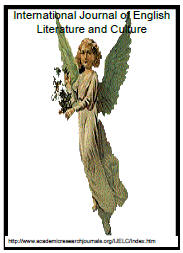| IJELC |
International
Journal of English Literature and Culture |
||||||||||||||||||||
|
International Journal of English Literature and Culture Vol. 3(5), pp. 137-144, May, 2015 ISSN: 2360-7831 DOI: 10.14662/IJELC2015.042 Research Paper Translations from the margins and the role of the market
Smita Devi
Department of English, G.M. College (Autonomous), Sambalpur, Odisha, India. E-mail:smitadevi810@gmail.com
Accepted 25 May 2015
Indian
literature in English was the direct result of political act:
colonization. The readers of this literature are predominantly from an
urban middle class background, products of an educational system
inherited from the colonizers. This background facilitated the
internalizing of the Western ways of looking at their own world. So when
something conformed to this discourse that they had naturalized, the
readers easily accepted it. That was why, sometimes, one found texts
which had the tribals as subjects/ objects depicted in a familiar way,
were accorded uncritical acclaim. This paper has examined two Odia (a
regional language of India) novels in English translations which are
based on the lives of tribals, to show how the depiction of the
“tribals” as a category has gone a long way in the regulation and
reification of hierarchical orders. The market forces have determined
the selection of these texts for translation because they offered an
essentialist version, which was acceptable to the dominant culture. Cite This Article As: Devi S (2015). Translations from the margins and the role of the market. Inter. J. Eng. Lit. Cult. 3(5): 137-144
|
|||||||||||||||||||||
|
|
||||||||||||||||||||
